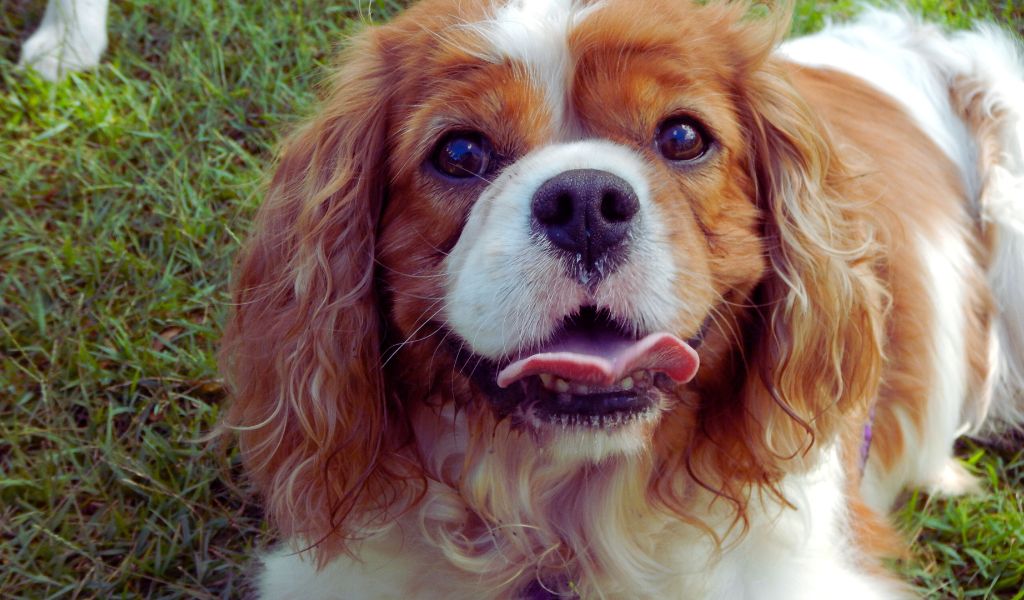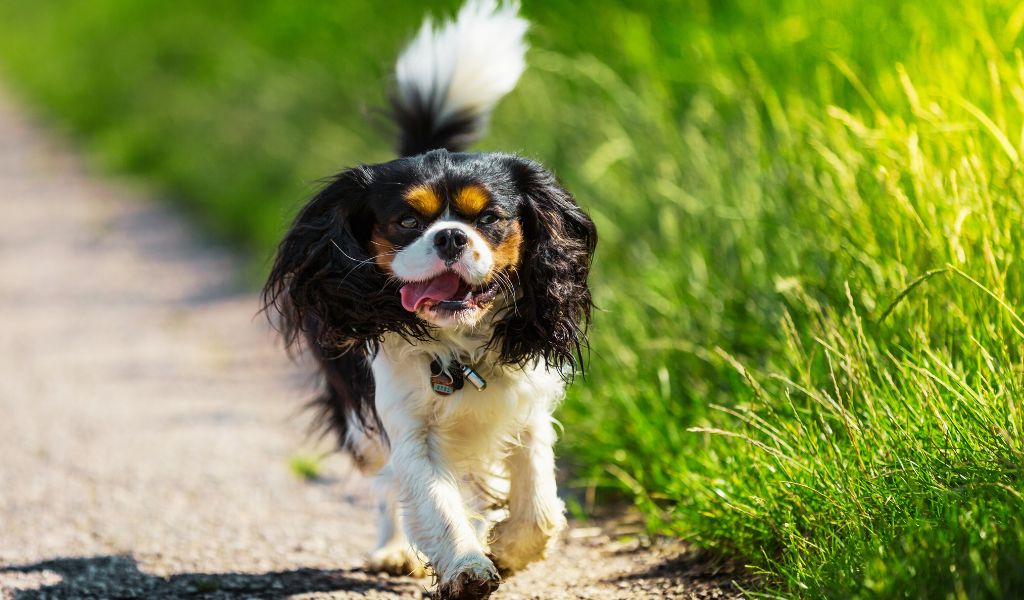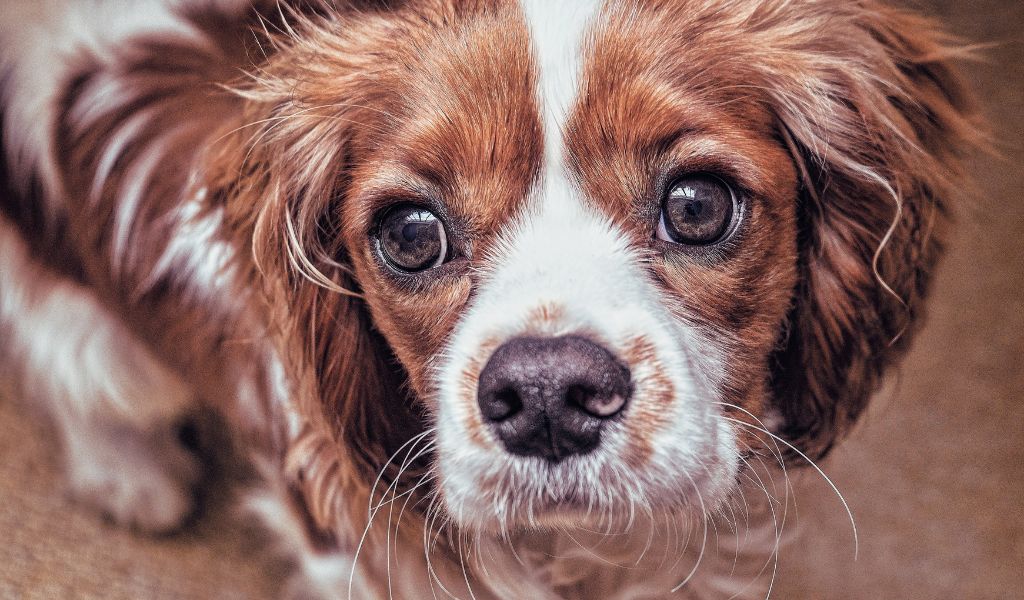Cavalier King Charles spaniels are known for their graceful and gentle nature, but there are some misconceptions about their temperament.
While they are generally sweet and loving dogs, some people may wonder if they have aggressive tendencies.
Cavalier King Charles Spaniels are not typically aggressive dogs. In fact, they are known for their friendly and affectionate personality. They are often described as companion dogs, and they thrive on human interaction and affection. However, like all breeds, individual dogs may exhibit aggressive behaviour for various reasons, including lack of socialisation, fear, or a medical issue. It is crucial for owners to understand the signs of aggression in their pets and address any concerning behaviour with proper training and socialisation.
What causes aggression in Cavalier King Charles spaniels?
There are several factors that can contribute to aggression in Cavalier King Charles spaniels.
One common cause is genetics, as some dogs may inherit aggressive tendencies from their parents.
Another potential cause is lack of socialisation, as dogs that have not been properly exposed to different people, animals, and environments may become fearful and reactive, leading to aggressive behaviour.
Additionally, environmental factors such as a stressful or unstable home environment, or exposure to abuse and neglect, can also contribute to aggression in these dogs.
Medical issues, such as pain or discomfort, can also lead to aggressive behaviour, as the dog may lash out in response to feeling unwell.
It is important for owners to address any signs of aggression in their Cavalier King Charles spaniels by seeking professional help from a veterinarian or animal behaviourist, and by actively working on socialisation and training to prevent future aggressive incidents.

Signs and behaviours of aggression in Cavalier King Charles spaniels
Like any breed Cavaliers are capable of displaying aggression. Signs of aggression in these dogs can include growling, showing teeth, barking excessively, stiff body language, and lunging or snapping at people or other animals.
Aggressive behaviours may also be exhibited through dominant posturing, guarding possessions or territory, and unwillingness to obey commands.
It’s always best to address any signs of aggression with professional training and behaviour modification, rather than ignoring or punishing the behaviour.
Early intervention and proper management can help prevent aggressive behaviours from escalating.
Training techniques to prevent aggressive behaviour in Cavaliers
Training techniques to prevent aggressive behaviour in Cavaliers include positive reinforcement, socialisation, and proper leadership.
Positive reinforcement involves rewarding desired behaviours with treats, praise, or playtime, while ignoring or redirecting unwanted behaviours.
Socialisation is essential for Cavaliers to learn appropriate behaviour around other dogs and people, and exposing them to a variety of environments from a young age can reduce fear-based aggression.
Proper leadership involves establishing yourself as the pack leader through consistent rules and boundaries, which can help prevent resource guarding and possessive aggression.
It’s important to start training early and be consistent with commands and expectations.
Additionally, using force or punishment-based methods can actually increase aggressive behaviour, so it’s best to focus on positive and gentle training techniques.
With patience and consistency, these training techniques can help prevent aggressive behaviour in Cavaliers and promote a well-behaved and socialised pet.
Addressing fear-based aggression in Cavalier King Charles spaniels
Cavalier King Charles spaniels are typically known for their friendly and affectionate nature, but fear-based aggression can sometimes be observed in this breed.
This aggression is often a result of a lack of socialisation or a negative experience in the past, causing the dog to react defensively when feeling threatened or scared.
To address fear-based aggression in Cavaliers, it is important to first identify the triggers and situations that lead to the aggressive behaviour.
Once the triggers are identified, behaviour modification techniques such as desensitisation and counter-conditioning can be used to help the dog feel more comfortable and less fearful in those situations.
It is crucial for owners to provide a calm and supportive environment, avoid punishing the dog for their fear-based behaviour, and seek professional help from a certified dog trainer or behaviourist if needed.
With patience, consistency, and positive reinforcement, fear-based aggression in Cavalier King Charles Spaniels can be effectively managed and improved.
Socialisation of Cavaliers and its impact on aggression
Socialisation plays a crucial role in the development of a Cavalier’s behaviour and aggression. Early socialisation can have a significant impact on a Cavalier’s ability to interact with other dogs and people.
Proper socialisation helps them to learn appropriate cues and behaviours, reducing the likelihood of fear-based aggression or reactivity towards unfamiliar situations.
In contrast, a lack of socialisation can lead to fear and anxiety in new environments, causing the Cavalier to display aggressive behaviour as a form of defence.
Additionally, a well-socialised Cavalier King Charles is more likely to be confident and secure in various social situations, which can reduce the risk of aggressive confrontations with other dogs or people.
Overall, early and ongoing socialisation is crucial for Cavaliers to develop into well-adjusted and non-aggressive companions.

Understanding aggressive vs. assertive behaviour in Cavaliers
Sometimes the behaviour of Cavaliers can be misinterpreted as aggressive when in reality it is just assertive and it’s important for owners to understand the difference between the two.
Aggressive behaviour in Cavaliers may include growling, snarling, and biting, and is often a response to fear or anxiety.
On the other hand, assertive behaviour is confident and self-assured, with the dog calmly and firmly expressing its needs and boundaries.
For example, a Cavalier may bark or stand its ground when it feels its personal space is being invaded, which is a sign of assertiveness rather than aggression.
By observing their body language and understanding the context of their behaviour, owners can better determine whether their Cavalier is being aggressive or assertive.
It’s important for owners to address any aggressive behaviours promptly with proper training and socialization, and to reinforce and praise assertive behaviours to promote a healthy and confident demeanour in their Cavalier.
Building trust and confidence in your Cavalier King Charles spaniel
Building trust and confidence in your Cavalier King Charles spaniel is crucial for establishing a strong bond and a positive relationship with your pup.
This can be achieved through consistent and positive reinforcement training, regular socialisation with other dogs and people, and providing a safe and secure environment for your pet.
Spending quality time with your Cavalier and being patient and understanding of their needs will also help build trust and confidence.
It’s important to be consistent in your actions and to provide plenty of love, praise, and healthy treats to reinforce positive behaviour.
Additionally, establishing a routine for feeding, exercise, and playtime will help your dog feel secure and comfortable in their surroundings.
By being a calm and assertive leader, you can help your Cavalier King Charles spaniel feel secure and confident, leading to a happy and well-adjusted pet.
Frequently asked questions about Cavalier King Charles spaniels and aggression
Are Cavalier King Charles spaniels aggressive?
Despite their history as hunting dogs, Cavalier King Charles spaniels are typically not aggressive in nature. They are known for their affectionate and gentle temperament, which makes them great companions for families.
What are the common signs of aggressive behaviour in Cavalier King Charles spaniels?
Aggressive behaviour in Cavalier King Charles spaniels may manifest in various ways, including barking, resource guarding, or unwillingness to interact with other dogs. However, it’s important to note that such behaviour is not typical of the breed and may indicate an underlying medical issue.
Can Cavalier King Charles spaniels become aggressive towards humans?
In general, Cavalier King Charles spaniels are not prone to aggression towards humans. Proper socialisation and positive reinforcement can help prevent any aggressive tendencies and ensure that they remain friendly and well-mannered around people.
Do Cavalier King Charles spaniels have a tendency to bark excessively?
While Cavalier King Charles spaniels may bark occasionally, they are generally not excessive barkers. Providing them with enough exercise and mental stimulation can help minimize any potential barking behaviour.
Are Cavalier King Charles spaniels prone to aggression towards other dogs?
A well-socialised and properly trained Cavalier is not typically aggressive towards other dogs. They are known to be friendly and sociable around other pets when introduced and managed appropriately.
How Can I discourage aggressive behaviour in my Cavalier King Charles spaniel?
Using positive reinforcement techniques, early socialisation, and consistent training can help discourage any aggressive tendencies in Cavalier King Charles spaniels.




